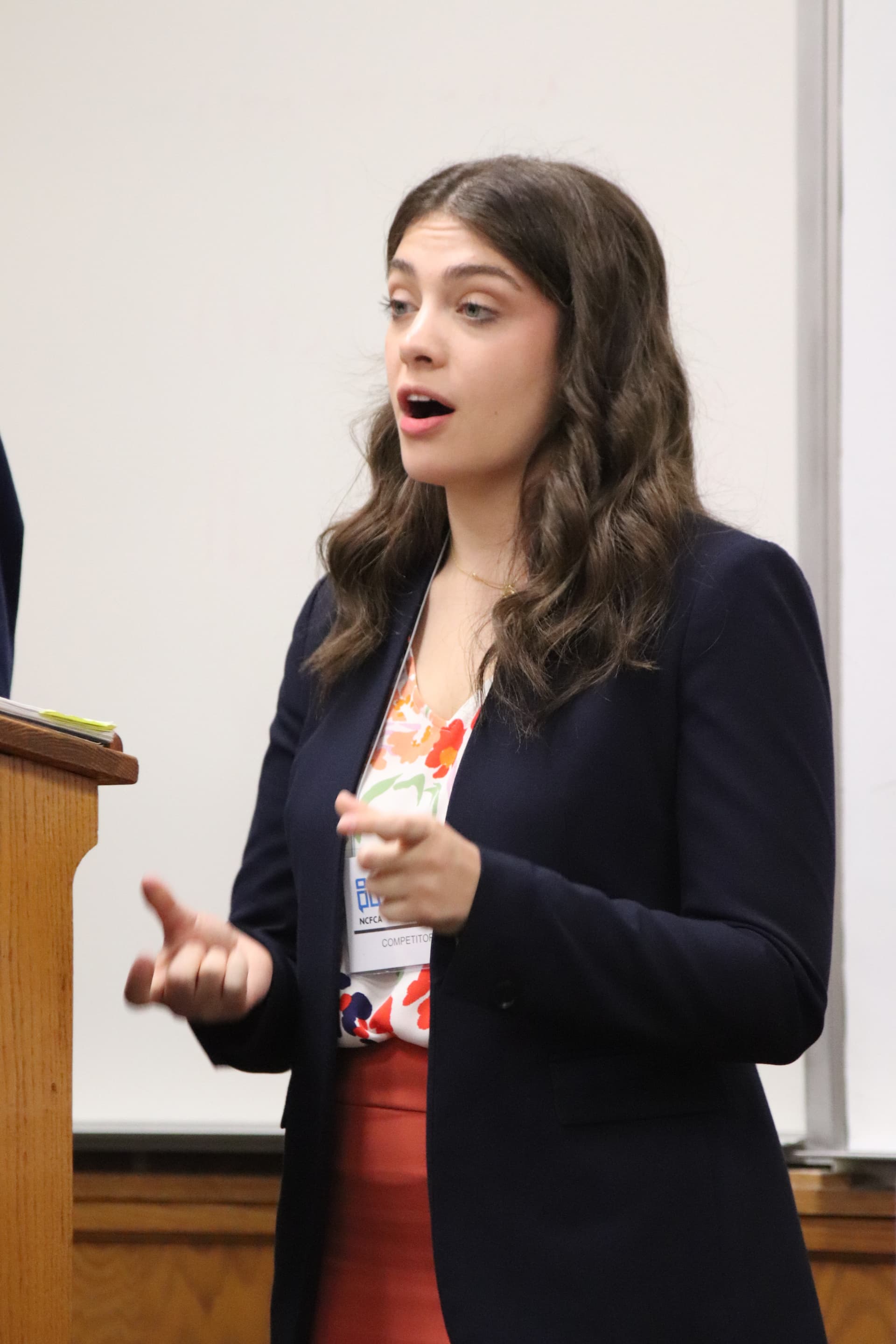Debate
Grapple with Real Issues
Debate skills are thinking skills.
Our two debate styles help students learn to support and defend ideas about a chosen topic for the season. They learn to look at issues from multiple angles, listen well, think on their feet, and argue graciously


How Debate Works
At the beginning of the season, we publish a topic for each style of debate. This topic is given as a debatable statement called a "resolution." Teams are expected to support and defend the resolution they are on the affirmative side in a competition round. When they are assigned to the negative side, they are expected to take a stand against the resolution and/or the affirmative team’s position.
This back-and-forth between affirmative and negative sides makes students think from multiple angles. We take great care to make sure that both sides of a resolution are morally defensible from a biblical worldview.
Debaters use their own research skills and creativity to anticipate challenges and decide on the facts, arguments, and positions they will use from either side in a round.
Team Policy & Lincoln-Douglas Value Debate
debate Styles
Policy debate challenges students to think critically about laws, regulations, and policies that impact societies. It seeks to identify possible problems with current conditions (the status quo) and weigh the advantages and disadvantages associated with making a change in policy.
Value debate challenges students to think critically about the ideals held by individuals and societies. It seeks to discover which values should drive decision-making rather than advocate for a particular course of action.
Hear from our Affiliates
testimonials
We have a welcoming community, and we're ready to help your family succeed with new skills! Read More Testimonials.
Impressed Parent
Playback Speed Quality LoopCaptions Accessibility AnnouncementsI was so impressed with the kids presenting that I came back to my wife. I said to her that we are going to do this. Not sure how we're going to do it, but we're going to try to go to every tournament because I'm so impressed with these kids.
Raul M.
Parent
My Favorite Event!
Playback Speed Quality LoopCaptions Accessibility AnnouncementsI started with Impromptu speaking, and I did not love it. It was difficult for me to effectively manage my time, but I stuck with it. My mom encouraged me to keep going, and I could say confidently by my last year, it was my favorite event.
Lucy C.
Student
The Power of Feedback
Playback Speed Quality LoopCaptions Accessibility AnnouncementsStudents get so much feedback and they learn how to humbly accept it, to appreciate it.
Melinda S.
Parent
Learn Discernment Through Competitive Debate
Playback Speed Quality LoopCaptions Accessibility AnnouncementsI think debate particularly gives them a tremendous amount of discernment, the ability to weigh arguments, and to make quality value assessments about what they're being told. I love that kids are learning to do real research from real worthy sources.
Kristi E.
Alumni Parent and Coach
Competition is a Catalyst for Learning
Playback Speed Quality LoopCaptions Accessibility AnnouncementsCompetition is such a great catalyst to learn to win graciously, to learn to lose graciously, to manage emotions—such an invaluable part of the process.
Ghena B.
Parent and Board Member
FAQs
Where can I find resources for speech and debate events?
Please visit the Resources page of the website and filter by Keyword, Category, Role, or Event.
Where can I find rules for speech and debate events?
Please visit the Competition Event Rules page.